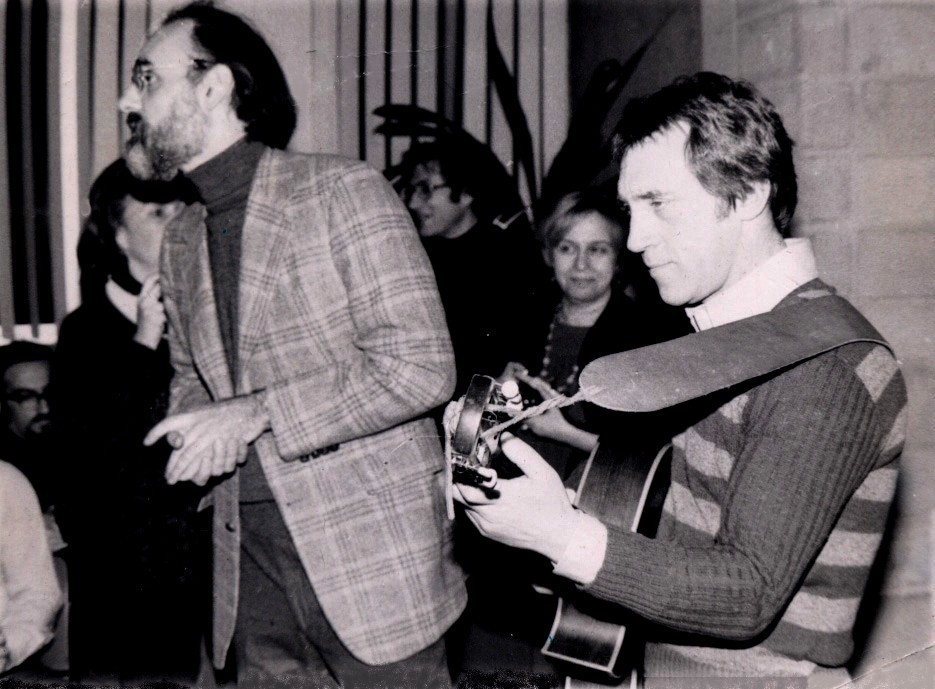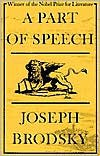 |
Специальные ежемесячные бизнес-журналы для руководителей крупных предприятий России и СНГ
|
 |
Окна из алюминия в Севастополе — это новые возможности при остеклении больших площадей и сложных форм. Читайте отзывы. Так же рекомендуем завод Горницу.
Страницы сайта поэта Иосифа Бродского (1940-1996)

Не многие почитатели творчества Бродского знают тех, с кем он плотно сотрудничал на Западе.
Наталия Шарымова решила восполнить этот пробел и познакомить читателей сайта с Барри Рубиным.
Из письма (Sent: Wednesday, October 10, 2007 11:04 PM):
"Барри Рубин - переводчик и друг Иосифа. Постоянно с ним общался, переводил и пр. и пр.
Преподавал в Hunter Collеge. Где он сейчас - не знаю. Старый телефон отключен.
Очень хороший, приятный человек. Посывлаю Вам его фото, где он переводит В.Высоцкого на встрече
со студентами в Хантер или Квинс-колледже - я думаю - в 1978 или 79 году.
На заднем плане - фотограф Нина Аловерт. Возможно, живет где-то в Пенсильвании".
90% времени зритель смотрит на Владимира Высоцкого - его скромность и достоинство подкупают.
Автор снимка - Наталия Шарымова. Фото из коллекции Наталии Шарымовой.
Отдельным письмом (Sent: Thursday, October 11, 2007 12:07 AM) Наталия осветила работу Рубина:
 |
Александр, вот кое-какие переводы Барри. В приложении - обложка "The Part of Speech@ Best Wishes nsh 1.The Nobel Lecture: Bilingual Edition by Joseph Brodsky and Barry Rubin ISBN 0374223041 / 9780374223045 / 0-374-22304-1 Language English Edition Hardcover 2.The New York Review of Books Volume 21, Number 1 б February 7, 1974 Review Beyond Consolation By Joseph Brodsky, Translated by Barry Rubin Volume 21, Number 1 б February 7, 1974 Review http://www.nybooks.com/articles/article-preview?article_id=9613 3. Part of Speech by Joseph Brodsky, Barry Rubin (Translator), Richard Wilbur (Translator), Daniel Weissbort (Translator), Alan Myers (Translator) Paperback 4. Less Than One: Selected Essays, Two poets and prose Last night I reread "A Poet and Prose," Joseph Brodsky's paean to the poetry and prose of Marina Tsvetaeva. The essay brims with fascinating ideas, many of which contain the gravity of serious intellectual reflection without losing the quotability of our best aphorists. Some of these I want to memorize and repeat to myself like mantras. A select few: "What does a writer of prose learn from poetry? The dependence of a word's specific gravity on context, focused thinking, omission of the self-evident, the dangers that lurk within an elevated state of mind." "Tsvetaeva's sentence is constructed not so much in accordance with the principle of subject followed by predicate as through the use of specifically poetic technology: sound assocation, root rhyme, semantic enjambment, etc. That is, the reader is constantly dealing not with a linear (analytic) development but with a crystalling (synthesizing) growth of thought." "The most awful thing about service to the Muses is prepcisely that it does not tolerate repetition--either of metaphor, subject, or device. In everyday life, to tell the same joke two or three times is not a crime. One cannot, however, allow oneself to do that on paper; language forces you to take the next step--at least stylistically. Not for the sake of your inner well-being, of course (though subsequently it does prove to be for its sake as well), but for the sake of language's own stereoscopic (-phonic) well-being. A clichО is a safety valve by means of which art protects itself from the danger of degeneration." (Emphasis mine.) The essay was translated by Barry Rubin and appears in Less Than One: Selected Essays, which I recommend highly. It's often available on the half-price literature shelves at Strand Books here in New York.
|

